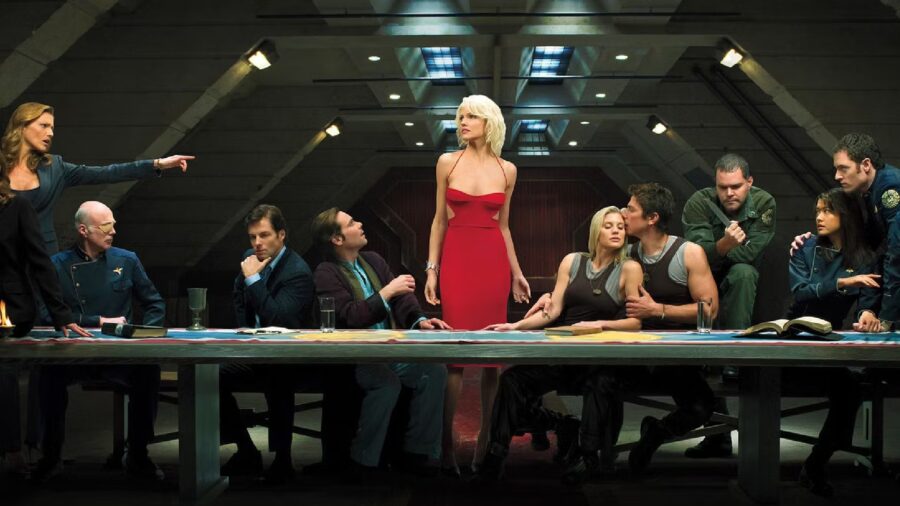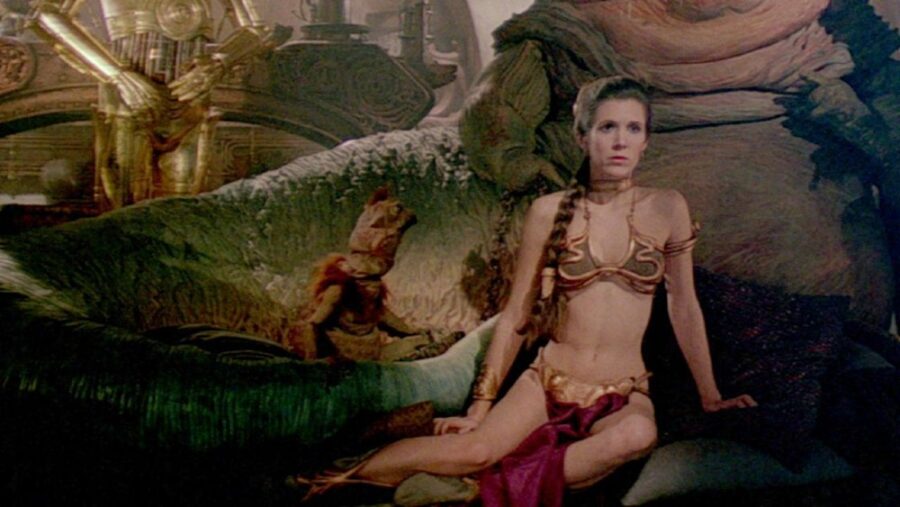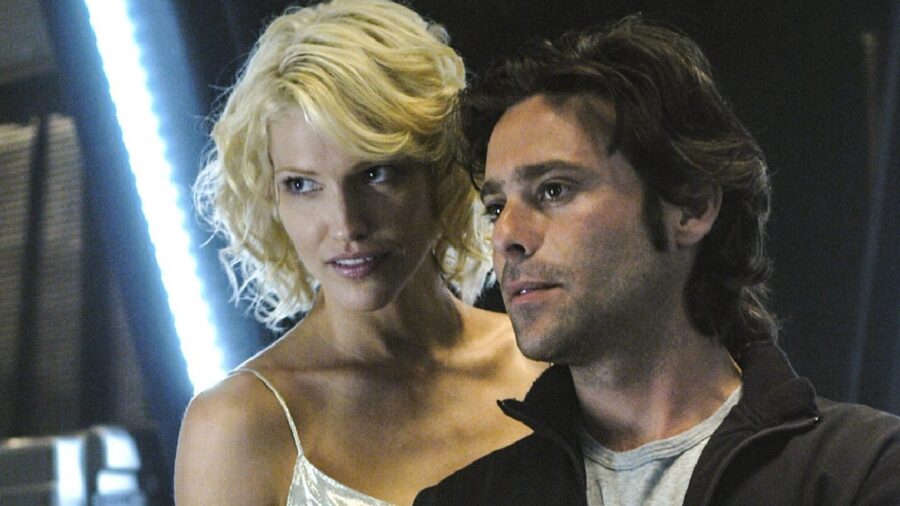Battlestar Galactica Creator Slams Double Standard

After the Battlestar Galactica reboot became insanely popular, creator Ronald D. Moore took his rightful place as the king of modern science fiction. And the king had plenty of things to say about what was wrong with the genre and how his own show tried to address those issues. For example, the Battlestar Galactica showrunner once complained about the double standard his show faced where audiences were more comfortable with violence and even the degradation of women than they were with mature stories about two adults engaging in intercourse.
The Double Standard

What caused the Battlestar Galactica showrunner to speak out against this double standard? It began with a fan letter to Moore complaining about explicit content in the show…in the fan’s words, the series “Doesn’t need s*x to get the viewers!” One of the fan’s core complaints was that such scenes made it harder for a friend to watch the show with his young child.
With the patience of a saint, Moore first explained that the show was made with an adult audience in mind and that he “wouldn’t dream of letting” his own small children watch the show. After that, the Battlestar Galactica showrunner turned this into a teachable moment regarding the double standards of explicit content in American media. In his words, “Somehow it’s okay to fetishize s*x by putting women in S&M; leather “space” outfits or have Carrie Fisher run around in harem clothes…but to portray two mature adults simply having s*x is somehow controversial in sci-fi circles.”
Moore Points Out Past Examples In Sci-Fi

While he specifically called out Star Wars with the mention of Carrie Fisher, it’s also possible that Moore was calling out Star Trek as well. His first real industry job was writing for Star Trek: The Next Generation, and went on to write for Deep Space Nine and Voyager. Somewhat infamously, Moore left Voyager after working on only two episodes and never worked on Enterprise, so it’s possible that his comment about “leather ‘space’ outfits” was tossing shade at characters like Seven of Nine and T’Pol.
Audiences Love Violence But Hate Risqué Romance

In addition to pointing out the hypocrisy regarding how intercourse is portrayed in media, the Battlestar Galactica showrunner went on to complain about the double standard where audiences find onscreen violence more acceptable than onscreen nudity. He specifically called out the “American audiences” who “can become red-faced with indignation over nudity, but find no problem with slasher films or chains-saw massacres.” He mentioned how Battlestar Galactica begins with “a massive genocide, and the pilot deals with violent, shocking deaths over and over again,” but what upset certain audiences the most was the risqué scenes between characters like Boomer and Tyrol.
Romance Is A Part Of Life, And Sci-Fi

These days, the idea of Battlestar Galactica fans freaking out over nudity may seem quaint, but the double standards Moore is dunking on were much more prevalent decades ago than they are now. However, that standard is still around in some circles…there are Star Trek fans who whine endlessly about Discovery’s romances (especially the franchise’s first gay couple) but don’t blink an eye at the show’s scenes of extreme violence. As always, though, whether the romance in a show is any good comes down to the writing and directing rather than the subject matter itself.
Let Them Kiss Between Killing!

Even though his comments are now decades old, the Battlestar Galactica reboot creator’s points about double standards among American audiences seem more relevant than ever. This is especially apparent with The Boys, a show where most fans don’t care about all the diabolical violence but predictably freak out at the show’s various innuendos. That content is pretty immaturely handled, but it might not be there at all if the producers didn’t realize what Moore figured out years ago: nothing riles violence-loving American audiences up more than sci-fi romance.













